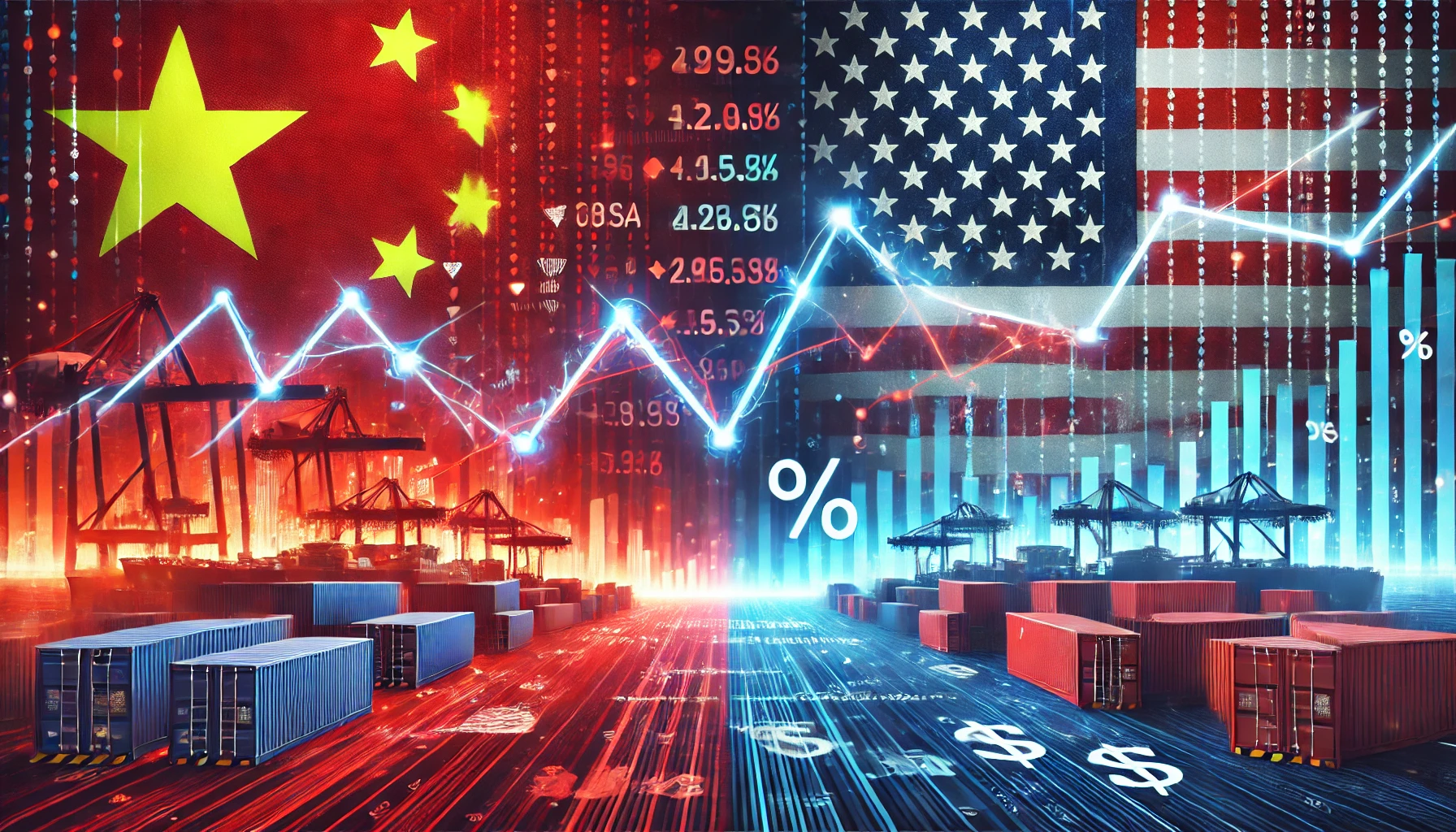Introduction: A New Phase in the U.S.-China Trade War
The ongoing trade tensions between the United States and China have escalated yet again, with both nations imposing new tariffs that could send ripples across global markets. On February 4, 2025, the U.S. announced a 10% tariff on a broad range of Chinese imports, triggering immediate retaliation from China. In response, Beijing imposed tariffs on U.S. coal, liquefied natural gas (LNG), crude oil, and other critical goods. Furthermore, China launched an antitrust investigation into Google and implemented new export controls on strategic minerals, adding another layer of uncertainty for global investors.
With markets already navigating economic headwinds, investors must assess how these developments could impact equities, commodities, and supply chains.
Why This Matters for Investors
1. Market Volatility and Economic Uncertainty
Trade wars historically lead to market turbulence, as seen during the U.S.-China tariff disputes of 2018-2019. The latest tariffs could exacerbate inflationary pressures, disrupt corporate earnings forecasts, and shake investor confidence. The S&P 500 and Nasdaq have already shown early signs of volatility following the news, with technology and energy stocks among the most affected sectors.
2. Commodities and Energy Markets at Risk
China’s retaliation targets key U.S. exports such as coal, LNG, and crude oil. Given that China is one of the largest importers of American energy products, this could lead to lower demand, price fluctuations, and revenue losses for major energy firms like ExxonMobil (NYSE: XOM) and Chevron (NYSE: CVX). Investors with exposure to energy stocks should closely monitor commodity price movements in the coming weeks.
3. Tech Industry Faces New Challenges
The Chinese government’s antitrust probe into Google signals potential regulatory headwinds for U.S. technology firms operating in China. This move follows similar actions against other U.S. tech giants in recent years. Investors should pay close attention to how this investigation unfolds, as it could impact Google’s revenue in the region and set a precedent for further tech restrictions.
4. Strategic Minerals and Supply Chain Disruptions
China’s new export controls on critical minerals, including rare earth elements, could have profound effects on industries reliant on these materials—such as electric vehicles (EVs), semiconductors, and defense. Companies like Tesla (NASDAQ: TSLA) and Nvidia (NASDAQ: NVDA), which depend on a steady supply of rare earths, could experience higher input costs and production slowdowns. This underscores the importance of diversifying supply chains and securing alternative sources for critical raw materials.
Future Trends to Watch
- Potential Policy Responses: The Biden administration may escalate countermeasures, such as further trade restrictions or incentives for domestic manufacturing. Any new developments could create additional investment opportunities in U.S.-based supply chain solutions.
- Stock Market Adjustments: Investors should expect sector rotation, with capital flowing into less-exposed industries while tech and energy stocks face downside pressure.
- China’s Long-Term Strategy: China’s moves suggest a shift toward self-sufficiency in key sectors, which could impact multinational corporations that rely on Chinese manufacturing and consumer markets.
Key Investment Insight
With heightened geopolitical tensions and economic uncertainty, investors should consider adjusting their portfolios to hedge against risks. Key strategies include:
- Diversification: Reducing exposure to sectors heavily impacted by tariffs, such as energy and technology.
- Commodity Investments: Exploring opportunities in alternative energy sources and non-Chinese rare earth suppliers.
- Safe-Haven Assets: Allocating capital to gold, bonds, or defensive stocks that tend to perform well during market volatility.
- U.S. Infrastructure Plays: With potential domestic supply chain incentives, companies involved in critical minerals, semiconductor manufacturing, and renewable energy may benefit.
Conclusion
The U.S.-China trade war has entered a new chapter, with far-reaching implications for global markets. Investors must stay informed and proactive in managing risk exposure. As the situation evolves, MoneyNews.Today will continue providing up-to-date analysis and actionable insights for investors navigating these uncertain times.
Stay updated with MoneyNews.Today for the latest market developments and investment strategies.





